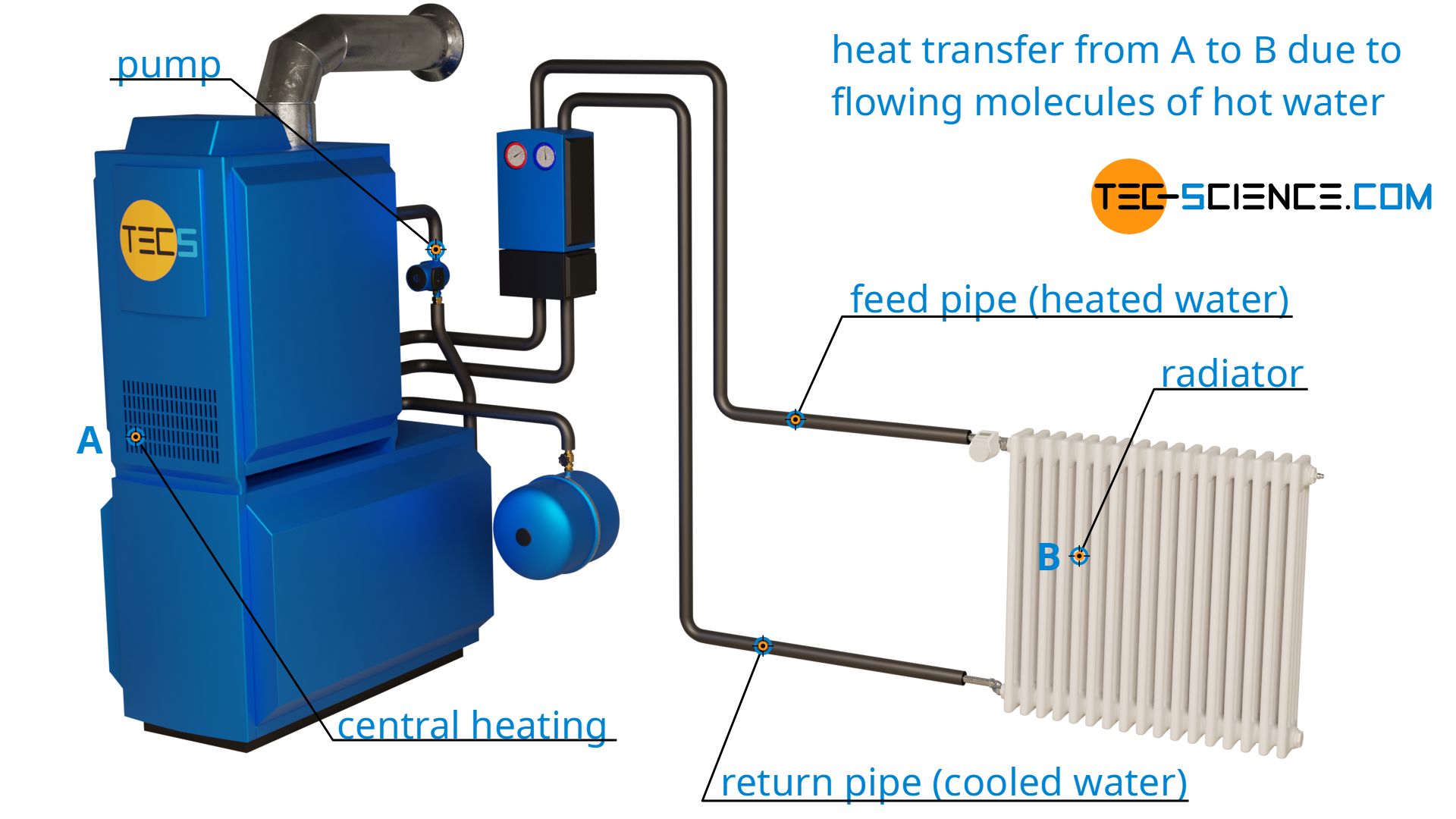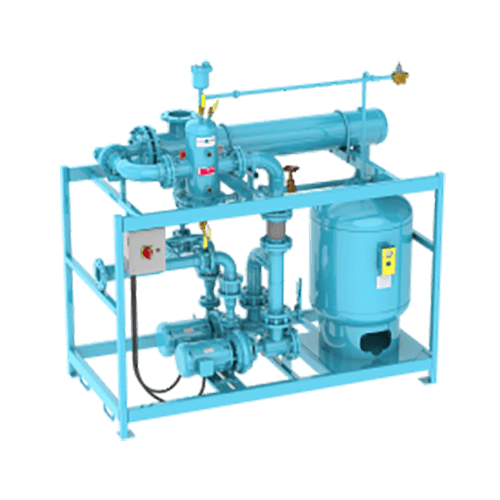DVS Heat Transfer Systems: A Complete Guide to Smarter IoT Integration
Wiki Article
The Role of Heat Transfer Equipments in Sustainable Power Solutions for the Future
Heat transfer systems are important in the quest for sustainable power solutions. They maximize thermal energy administration, improving the effectiveness of eco-friendly modern technologies. By using devices like radiation, transmission, and convection, these systems decrease energy losses. Their role in solar thermal and geothermal applications is particularly significant. As advancements emerge, the capacity for further developments raises essential questions about future energy approaches. What growths will form the landscape of sustainable energy?Understanding Heat Transfer Solutions

The Relevance of Thermal Power Monitoring
Effective thermal power monitoring is crucial for maximizing energy efficiency and lessening waste in different systems. By controling temperature and optimizing Heat transfer processes, organizations can significantly reduce power intake and operational costs. Reliable monitoring includes the application of sophisticated modern technologies and techniques that keep an eye on and regulate thermal problems within systems, making sure that power resources are utilized efficiently. Additionally, proper thermal energy administration contributes to decreasing greenhouse gas emissions, straightening with worldwide sustainability goals. It also enhances system reliability and performance, resulting in improved product top quality and longer devices life expectancy. Eventually, prioritizing thermal power administration is a vital step towards creating more lasting power services and promoting an accountable method to energy intake in domestic and commercial contexts.Applications of Heat Transfer in Renewable Resource
While numerous renewable resource resources guarantee sustainability, the reliable application of Heat transfer plays a necessary role in their effectiveness. In wind power systems, Heat transfer is made use of for generator element cooling, enhancing performance and long life. Geothermal power relies on efficient Heat exchange in between the planet's subsurface and the liquid circulating in the system, making the most of energy removal. Biomass power procedures also profit from Heat transfer, as it assists in converting organic materials right into functional gas via pyrolysis and gasification. Additionally, in hydropower, preserving excellent temperature levels in storage tanks can enhance energy result. Each of these applications shows the critical value of Heat transfer systems in enhancing sustainable energy technologies, eventually adding to a much more sustainable energy future.Enhancing Solar Thermal Power Efficiency
As solar thermal power systems remain to evolve, enhancing their efficiency has actually come to be essential for taking full advantage of power outcome. Developments in Heat transfer innovations, such as improved thermal storage products and cutting-edge Heat exchangers, play a significant role in enhancing efficiency. By making use of sophisticated materials that have superior thermal conductivity, systems can capture and move Heat a lot more successfully. In addition, incorporating monitoring systems that comply with the sun's path guarantees that collection agencies get optimal solar direct exposure throughout the day. Making use of nanotechnology in solar absorbers can better enhance energy absorption rates. Including automated control systems aids control temperatures and manage power distribution successfully, leading to minimized losses and enhanced total system performance. These enhancements lead the way for even more sustainable solar thermal energy remedies in the future.Geothermal Heating: A Lasting Option
Geothermal heating presents a sensible choice for lasting power, providing substantial environmental benefits with reduced greenhouse gas exhausts. Its effectiveness and cost-effectiveness make it an eye-catching alternative to traditional heating systems. Nonetheless, challenges associated to execution should be resolved to maximize its prospective effect.Ecological Advantages of Geothermal
Traditional heating methods contribute significantly to greenhouse gas exhausts, geothermal heating provides a compelling option that decreases ecological effect. By taking advantage of the Planet's internal Heat, geothermal systems make use of a renewable resource source, substantially reducing reliance on nonrenewable fuel sources. This approach creates very little carbon emissions, making it a cleaner option for household and business heating. In addition, geothermal systems advertise energy efficiency, as they call for much less energy compared to conventional heater. DVS Heat Transfer Systems. The usage of geothermal power also helps in minimizing air pollution, boosting regional air quality and public wellness. As a sustainable remedy, geothermal heating sustains climate adjustment mitigation initiatives, positioning itself as a vital component in the change towards a greener futurePerformance and Cost-Effectiveness
Exactly how does geothermal home heating determine up in terms of effectiveness and cost-effectiveness contrasted to typical heater? Geothermal home heating demonstrates superior effectiveness, commonly accomplishing a coefficient of performance (POLICE) of 3 to 5, indicating it creates 3 to five devices of Heat for every system of electrical power taken in. This effectiveness translates right DVS Heat Transfer Systems into lower operating expense, especially in areas with stable geothermal resources. First installation prices can be higher than traditional systems; however, long-lasting savings on power bills and minimized upkeep expenses can counter these upfront investments. Furthermore, several governments incentivize geothermal systems with discounts and tax credits, improving their cost-effectiveness. In general, geothermal home heating arises as a economically viable and lasting choice to more standard heating remedies.Application Obstacles and Solutions
Various difficulties can restrain the widespread implementation of geothermal heater, in spite of their clear advantages as a sustainable energy service. High first installation expenses typically prevent capitalists and home owners, making funding a substantial obstacle. Furthermore, the geographical restrictions of appropriate geothermal websites restrict ease of access in certain regions. Neighborhood laws and allowing processes can likewise complicate project development, leading to delays. Moreover, public awareness and understanding of geothermal systems continue to be reduced, preventing approval. To address these challenges, targeted education projects can enhance open secret, while government motivations might ease monetary problems. Working together with regional authorities to improve regulations might promote smoother job authorizations, inevitably advertising the fostering of geothermal heating as a viable, lasting power choice.Developments in Heat Transfer Technologies
Advancements in Heat transfer modern technologies play a crucial duty in enhancing power effectiveness and sustainability. Advanced Heat exchangers and stage change products are at the leading edge of these developments, using significant renovations in thermal administration. These technologies not just optimize power usage yet likewise contribute to lowering environmental influence in different applications.Advanced Heat Exchangers
Advanced Heat exchangers play an important duty in boosting power performance throughout different applications in lasting power options. These gadgets assist in the transfer of Heat between 2 or more liquids, noticeably reducing power consumption in procedures such as commercial home heating, air conditioning, and power generation. Developments in materials and style, such as using nanofluids and small arrangements, have caused improved thermal efficiency and lowered dimension demands. Additionally, innovations in digital monitoring and control systems permit enhanced procedure, further increasing efficiency. By minimizing waste Heat and taking full advantage of power healing, advanced Heat exchangers add to decrease carbon impacts and sustain the shift towards ecologically friendly innovations. Their continued development is crucial for attaining global power sustainability goals.
Stage Modification Products
The integration of stage change materials (PCMs) right into Heat transfer innovations stands for a considerable improvement in power management and efficiency. PCMs absorb and release thermal energy throughout their phase modifications, allowing efficient temperature policy in building materials and power systems. By keeping excess Heat during peak periods and launching it when demand rises, PCMs add to load changing and energy conservation - DVS Heat Transfer Systems. This capability boosts the efficiency of renewable resource systems, specifically in solar thermal applications. Additionally, PCMs can boost the thermal comfort of indoor atmospheres, reducing dependence on standard home heating and cooling methods. As technologies in PCM formulations continue to emerge, their function in lasting energy options is poised to expand, using appealing methods for future research study and application
Future Potential Customers for Heat Transfer in Sustainable Power
As the need for lasting energy services proceeds to rise, the duty of Heat transfer systems is coming to be progressively vital fit future modern technologies. Innovations in layouts and products are anticipated to improve effectiveness in Heat transfer, minimizing power losses in numerous applications. The assimilation of advanced thermal storage systems, such as phase change products and thermochemical storage space, will enable far better monitoring of energy sources. Research right into nanofluids and biomimetic Heat exchangers might better optimize thermal performance. The fostering of clever modern technologies will permit for real-time monitoring and adaptive control of Heat transfer processes. These innovations are poised to significantly contribute to the general efficiency and sustainability of energy systems, leading the means for an extra energy-efficient future.Often Asked Questions
How Can People Execute Heat Transfer Equipment at Home?

Individuals can execute Heat transfer systems in your home by mounting energy-efficient devices, making use of radiant home heating, and enhancing insulation. These measures enhance power efficiency, lower prices, and promote sustainable methods in domestic atmospheres.

What Are the Expenses Connected With Setting Up Heat Transfer Solutions?
The costs connected with mounting Heat transfer systems vary extensively, normally including tools, installation labor, and maintenance. Factors such as system type, home size, and local policies greatly influence the overall expense included.Exist Federal Government Motivations for Heat Transfer System Installations?
Government rewards for Heat transfer system setups vary by area and can include tax obligation grants, credit reports, and rebates. These economic benefits intend to motivate fostering, inevitably advertising energy efficiency and reducing environmental impact within neighborhoods.Exactly How Do Heat Transfer Equipments Impact Power Expenses?
Heat transfer systems especially affect energy expenses by optimizing power effectiveness. By improving the transfer of Heat, these systems reduce energy consumption, resulting in reduced energy prices and creating an extra sustainable strategy to energy administration.What Maintenance Is Required for Heat Transfer Equipments?
Maintenance for Heat transfer systems includes routine evaluations, cleansing of parts, checking liquid levels, guaranteeing correct insulation, and changing worn parts. These jobs aid keep effectiveness, protect against malfunctions, and extend the system's functional lifespan.These systems assist in the activity of thermal power from one tool to another, enabling the transfer of Heat for air conditioning, energy, or heating generation objectives. Geothermal energy depends on reliable Heat exchange in between the earth's subsurface and the fluid circulating in the system, making best use of power extraction. In addition, geothermal systems advertise energy efficiency, as they require less energy contrasted to standard home heating systems. Advanced Heat exchangers play a necessary duty in enhancing power performance across numerous applications in sustainable energy services. Heat transfer systems especially affect energy bills by maximizing energy efficiency.
Report this wiki page